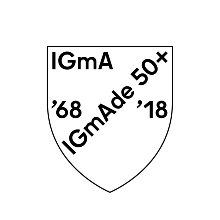Giuliana Fronte
Giuliana Fronte studied architecture and urban planning at the University of Stuttgart with stays in Rotterdam and Venice (IUAV). She graduated with a Master's thesis focused on how the privatization water infrastructure influences the transformation of cities from an aesthetic, ecological and socio-political point of view and to what extent an alternative urban planning and architectural approach to wastewater can contribute to more resilient structures. Since 2024 she has been teaching and researching as an associate researcher at the Institute for Principles of Modern Architecture and Design (IGmA) and works for Studio Urban Strategies, where she pursues a cross-scale and integrative approach in the design of spaces and their transformation processes. Her fields of interest comprise of the socio-political dimension of architecture, urbanism and remembrance culture in the public space. With her research on the rubble mountain Birkenkopf in Stuttgart she made an important contribution to the City Encyclopedia by the City Archive. Together with the Coordination Office for Remembrance Culture, she is also involved in the development of a participatory design process for a contemporary remembrance concept on the site.
In her doctoral project, she focuses on the spatial implications of freedom based on liberal architecture and urban planning discourses and investigates libertarian spatial productions.


